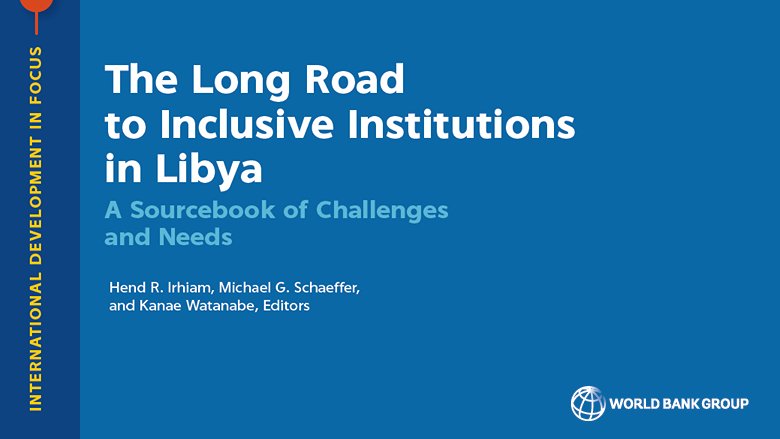Libya, an oil-rich country strategically situated at the crossroads of Africa, the Middle East, and Europe, possesses abundant yet unrealized potential. The conflict in Libya has not only resulted in a significant loss of development gains for its citizens but has also directly affected the well-being of neighboring countries, the Sahel region, and Europe. After an inconclusive transitional phase, Libya remains trapped in a political deadlock. The institutional legacy of the nation's complex history, combined with a decade of instability, has led to development indicators and institutional capacity non aligning with Libya's middle-income status. Reconciliation and political stability are essential for Libya's sustainable socio-economic future. Economic discussions can serve as a valuable complement to the political process, aiding Libya's progress toward peace and a political settlement over time.
Libya stands to profit from a reconstruction strategy and a vision that bring the country together. Investment decisions will have to be based on the analysis of alternative short- medium- and long-term interventions and the sequencing of related reforms, all while considering realities on the ground. A stable Libya will carry substantive positive spill-over effects for neighboring countries and beyond. If sustainable peace and stability are to take hold, Libya¡¯s partners must stay the course, sustain engagement, and support Libya¡¯s efforts to rebuild equitably and inclusively.
is a rich compilation of analytical work on Libya¡¯s sector dynamics and reform choices. The content was developed in partnership with over fifty contributors from nine institutions and co-edited by Hend Irhiam, Michael Schaeffer and Kanae Watanabe. The book¡¯s twenty-one chapters address institutional transformation, reflect on the conflict¡¯s impact on the economy, and outline the consequences of the conflict on people and services. The book demonstrates that even in challenging circumstances, one can contribute to the development of a near- and medium-term vision for a political, economic, and socially inclusive Libya while acknowledging the need to adapt as the circumstances evolve. Utilizing innovative analytical techniques (phone surveys, nighttime data), the authors make a unique contribution to the discussion on Libya¡¯s medium- to long-term challenges.
The objective of this sourcebook is to provide information and reflection for debates on Libya for the government, civil society, academia, and international partners. The twenty-one chapters are organized in five parts: I ¡°State Institutions: From Legacy to Reform¡±; II ¡°Tracking the Economy during the Conflict¡±; III ¡°The Impact of the Conflict on People¡±; IV, ¡°Services during Conflict¡±; and part V ¡°Toward New Institutions.¡± Readers may choose to go directly to a specific subject of interest.
Developing a shared medium- to long-term vision for a politically, economically, and socially inclusive nation is vital to Libya's sustainable future. This sourcebook contributes to this goal, serving as a small steppingstone to help Libya advance towards realizing its full potential.
